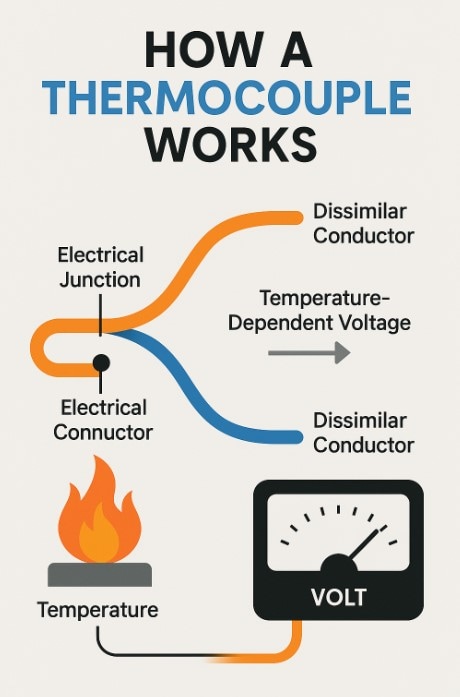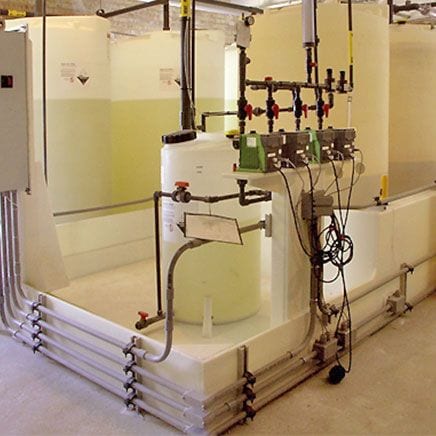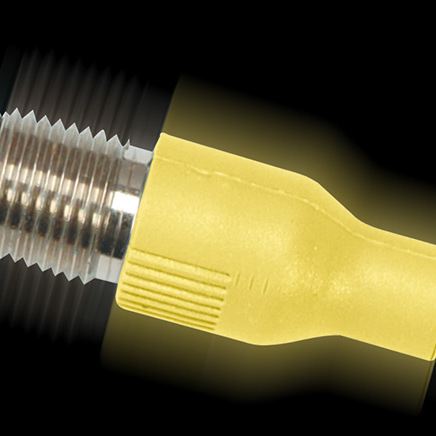What is a Thermocouple?
A thermocouple is a temperature sensor made by joining two dissimilar metals at a junction. When this junction experiences a change in temperature, it generates a voltage through the Seebeck effect. This voltage is directly related to temperature and can be interpreted by measurement instruments to provide accurate temperature readings.
Because of their wide temperature range, durability, and fast response times, thermocouples are among the most widely used temperature sensors in industrial and laboratory environments. They are available in different junction styles—grounded, ungrounded, or exposed—each offering trade-offs in response time, noise immunity, and environmental protection.
Engineers rely on thermocouples in applications such as HVAC systems, process control, industrial ovens, furnaces, engines, and scientific research. Their versatility, low cost, and compatibility with standardized thermocouple types (such as K, J, T, and E) make them a go-to solution whenever reliable and repeatable temperature measurement is required.




